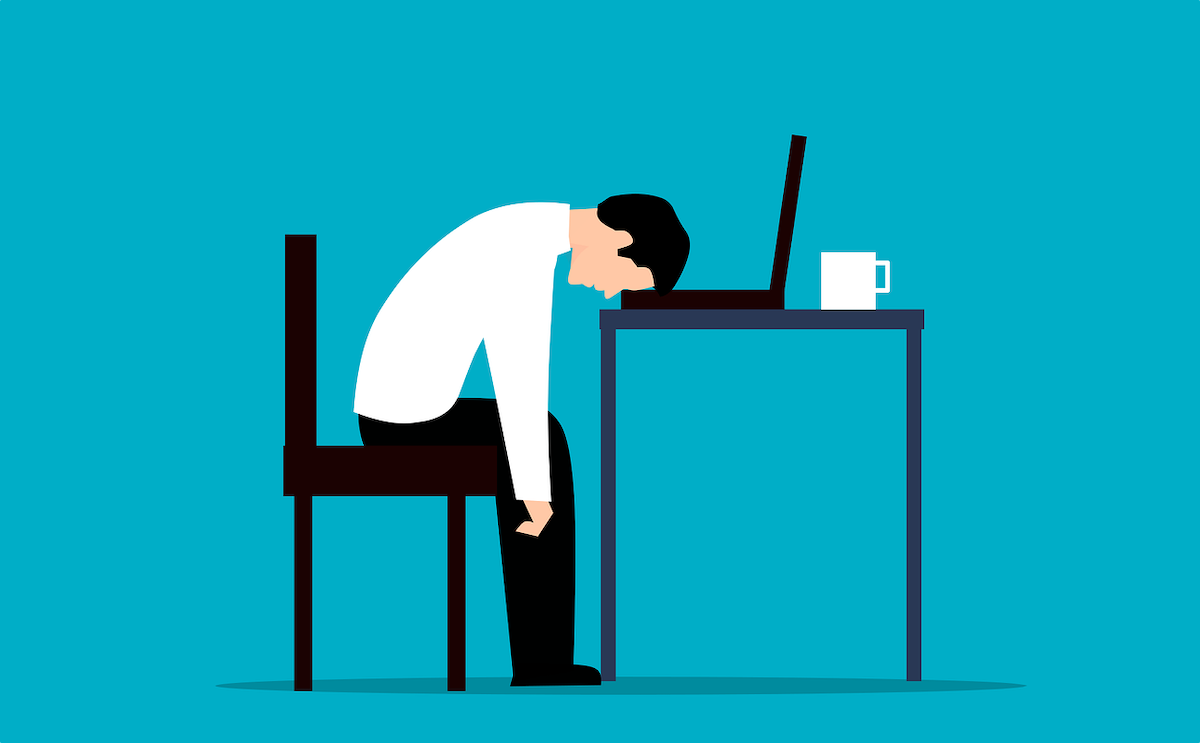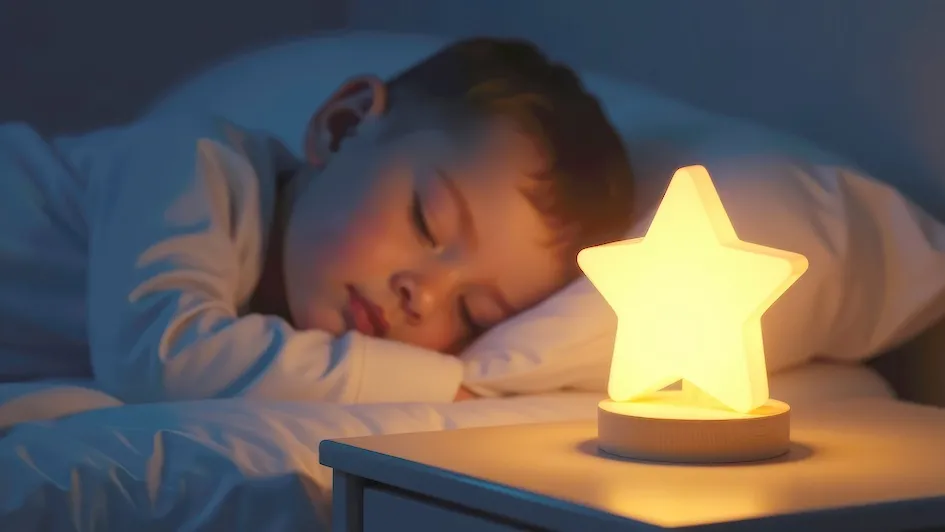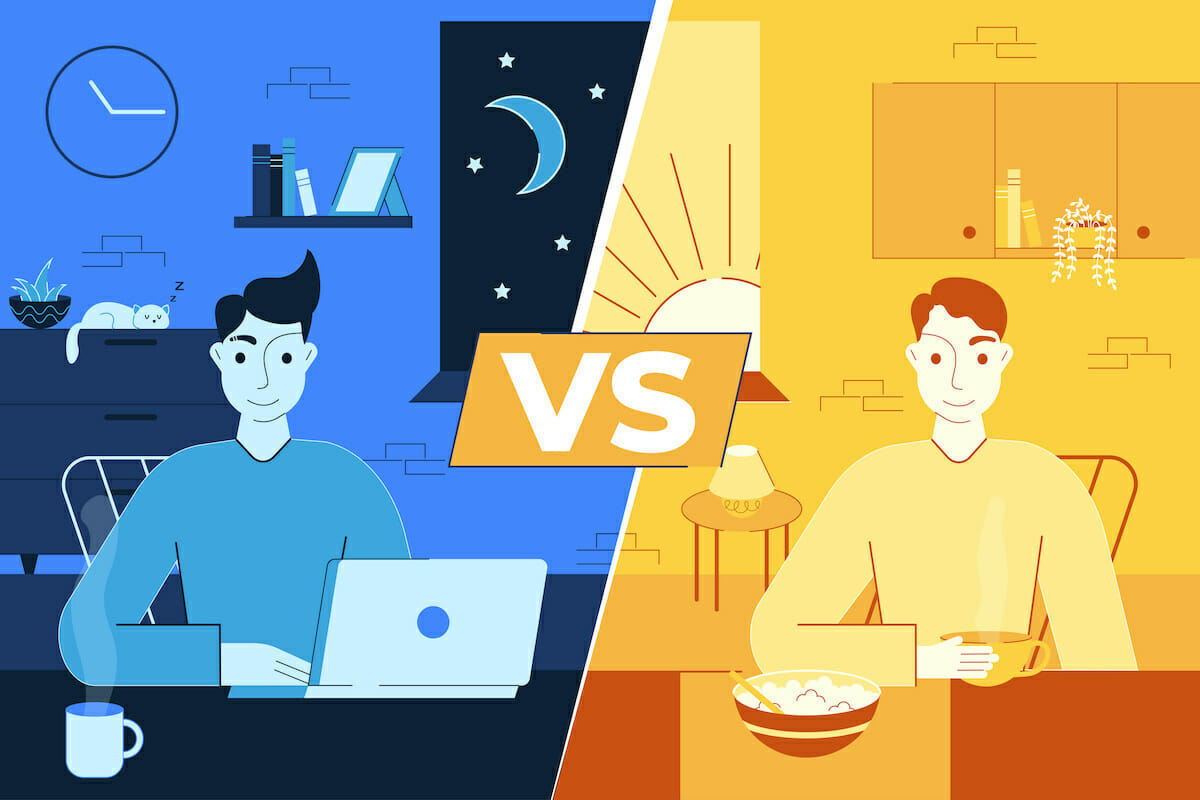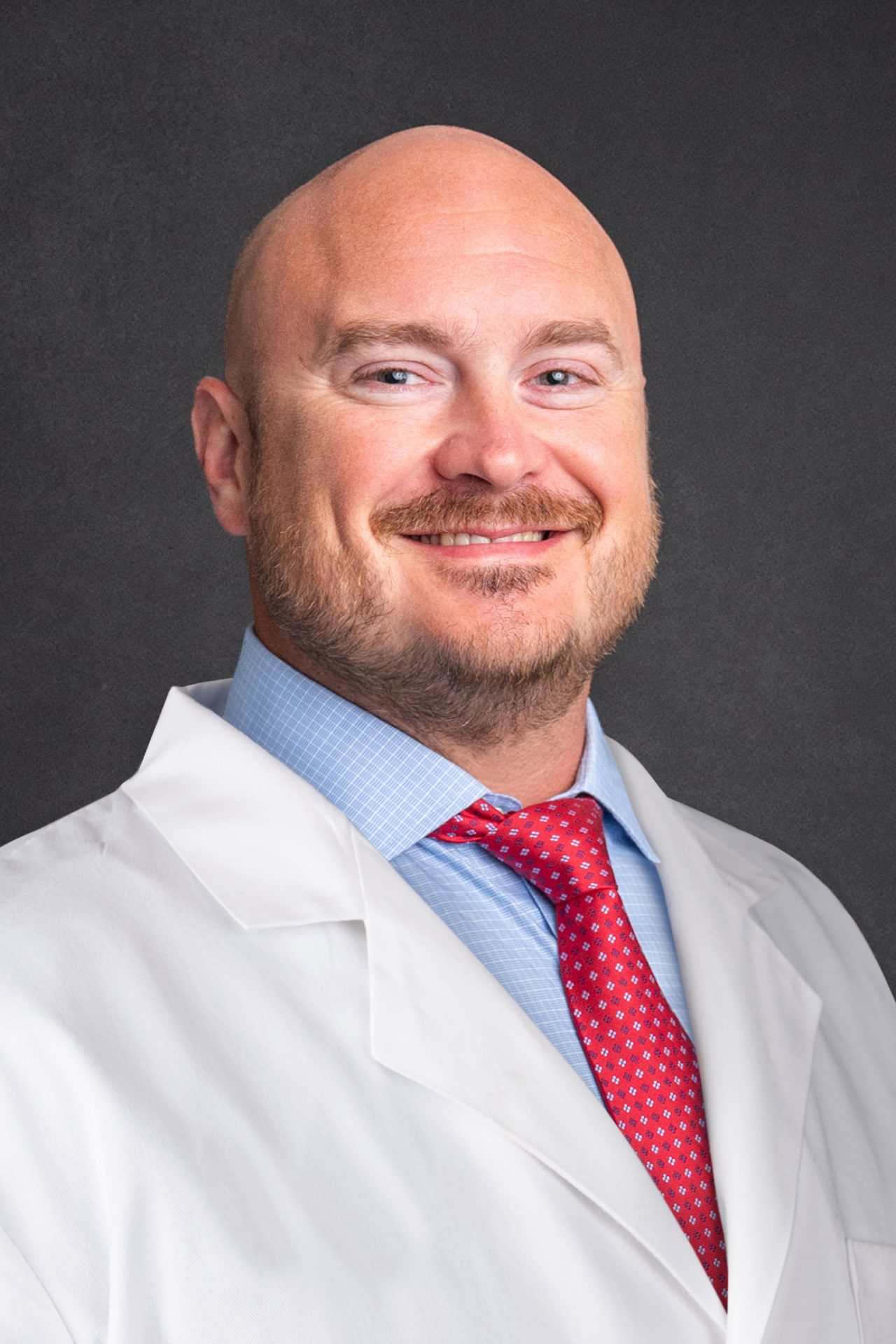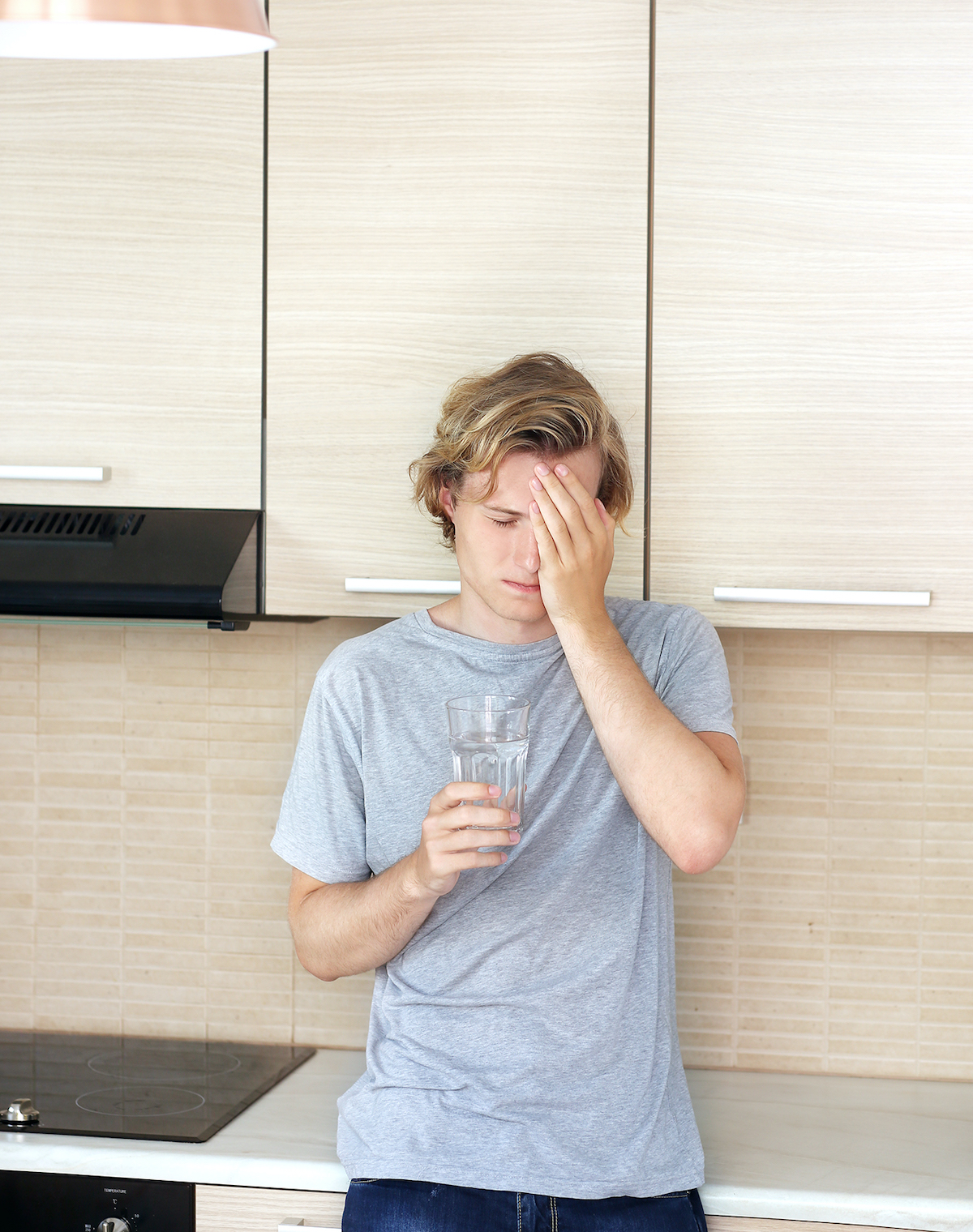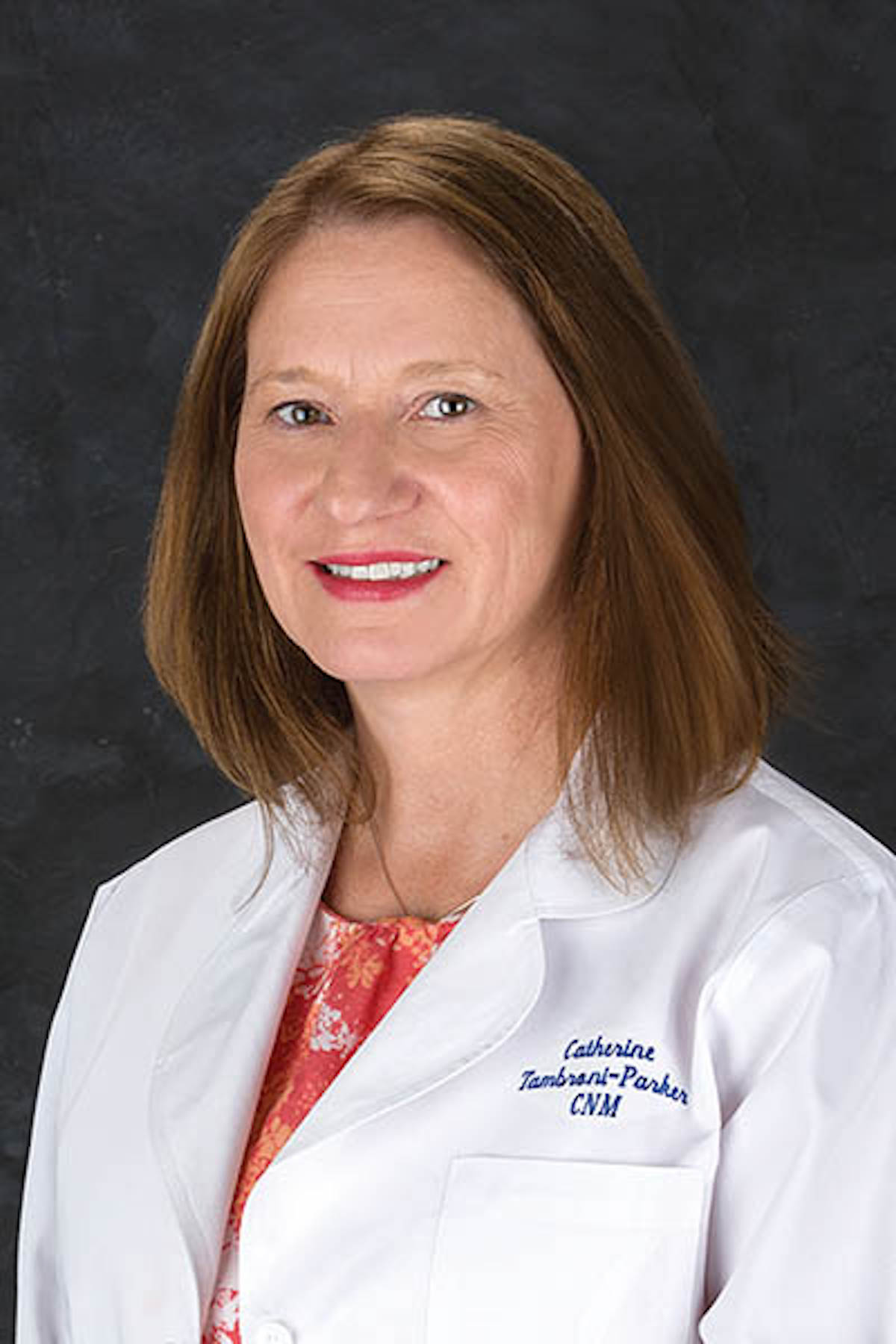headaches by disrupting REM or other sleep stages and producing proteins that trigger migraines, lowering a person’s pain threshold to withstand headaches. Other possible causes of headaches include sleep apnea and teeth grinding.
Prolonged limited sleep can have long-term effects, including a higher risk of obesity, high blood pressure, heart disease, and type 2 diabetes, as well as other conditions.
The optimal amount of sleep varies according to age. For most adults, it is 7 hours or more per 24 hours.
A person can treat or prevent headaches relating to a lack of sleep by using OTC medication, prescription medication, acupuncture, and massage. They can also take steps to improve their sleep hygiene.
A lack of sleep can cause headaches as a short-term consequence, but it will not cause chronic headaches in people without this condition. Researchers have linked sleep to headaches in various ways, with the connection seeming to exist in both directions.
A person’s sleep needs change as they age. The Centers for Disease Control and Prevention (CDC) note that the American Academy of Sleep Medicine and the Sleep Research Society recommend:
4–12 months of age: 12– 16 hours of sleep per 24 hours, including naps
1–2 years of age: 11–14 hours of sleep per 24 hours, including naps
3–5 years of age: 10–13 hours of sleep per 24 hours, including naps
6–12 years of age: 9–12 hours of sleep per 24 hours
13–18 years of age: 8–10 hours of sleep per 24 hours
18–60 years of age: 7 or more hours per night
Side effects of little sleep:
REM sleep
Studies suggest more painful headaches. The authors of a review article found that a lack of sleep increases proteins in the body that contribute to chronic pain. These proteins can reduce the body’s ability to withstand pain and can trigger migraine headaches.
REM sleep begins within about 90 minutes of falling asleep and causes the eyes to move rapidly from side to side behind the closed eyelids.
During REM sleep, a person’s breathing becomes faster and more regular, and their heart rate and blood pressure increase to levels like those during wakefulness. Mixed frequency brain activity also becomes closer to the activity levels that occur when a person is awake.
It is possible that deficits in other stages of the sleep cycle can contribute to headaches and other types of pain too.
Sleep and headache cycle
2017 research found that sleep problems can trigger tension headaches and migraine episodes and that the headaches can, in turn, promote sleep disturbances. The reason for this is that sleep and headaches share common brain structures and mechanisms.
The research also indicates a link between headaches, sleep disturbances, and depression, suggesting that depression lowers a person’s pain threshold.
Reduced pain threshold
A lack of sleep may reduce the body’s ability to withstand pain. Research has found that people with insomnia and other sleep problems may have a lower pain threshold than those who do not have trouble sleeping. This lower pain tolerance may result in headaches that are more painful following a lack of sleep.
Snoring and sleep apnea
If a person snores regularly, they may be at higher risk of chronic headaches. Snoring is one of the main symptoms of obstructive sleep apnea, which is a condition that causes temporary pauses in breathing during sleep.
Sleep apnea disrupts sleep and often results in people waking with a headache and feeling unrested. Symptoms of sleep apnea include:
pauses in breathing
waking up
needing to urinate during the night
daytime sleepiness
sweating during the night
However, not all people who snore have obstructive sleep apnea. Snoring that results from other issues, such as allergies or congestion, is also linked to headaches.
Teeth grinding
A person may experience a dull, constant headache and jaw pain from grinding their teeth while they sleep. Frequent teeth grinding is called bruxism, and it can be a symptom of poor sleep and excessive stress. However, bruxism itself does not cause sleep deprivation.
Other side effects of little sleep
A lack of sleep can be detrimental to a person’s physical and mental health. The effects of not getting enough sleep may include an increased risk of:
moodiness
poor productivity levels
motor vehicle crash
brain fog
injuries
Over the long term, medical problems can develop, such as:
obesity
high blood pressure
type 2 diabetes
stroke
heart disease
poor mental health
Tips for better sleep
According to the CDC, a person can take steps to improve their sleep. These include:
going to bed and getting up at the same time each day, including on weekends
removing electronic devices, such as televisions, phones, and computers, from the bedroom
quitting smoking, if applicable
ensuring that the bedroom is dark, at a comfortable temperature, and quiet
avoiding caffeine, large meals, and alcohol before bedtime
exercising and being physically active during the day
Sources:
https://www.medicalnewstoday. com/articles/headache-from-lack-of-sleep?utm_source=Sailthru%20 Email&utm_medium=Email&utm_ campaign=MNT%20Daily%20 News&utm_content=2021-08-06
&apid=37763034&rvid=3424e32faa971ce2c1b02d01ee
d1022831fc564614ad3f53b1cc99363570ba22
Additional sources:
Are you getting enough sleep? (2021).
https://www.cdc.gov/sleep/features/getting-enough-sleep.html
Brain basics: Understanding sleep. (2019).
https://www.ninds.nih.gov/ Disorders/Patient-Caregiver-Education/Understanding-Sleep
Durham, P., et al. (2011). REM sleep deprivation promotes sustained levels of proteins implicated in peripheral and central sensitization of trigeminal nerves: Role in pain chronification.
https://www.jpain.org/article/ S1526-5900(11)00174-X/ fulltext
Fernández-de-las-Peñas, C., et al. (2017). Sleep disturbances in tension-type headache and migraine.
https://www.ncbi.nlm.nih.gov/ pmc/articles/PMC5784553/
Haack, M., et al. (2019). Sleep deficiency and chronic pain: Potential underlying mechanisms and clinical implications.
https://www.nature.com/articles/ s41386-019-0439-z?proof=t
Migraine. (2019).
https://www.nhs.uk/conditions/ migraine/
Peckel, L. (2018). The symbiosis of headache and sleep.
https://www.neurologyadvisor. com/advisor-channels/headache-migraine-advisor/the-symbiosis-of-headache-and-sleep/
Sivertsen, B., et al. (2015). Sleep and pain sensitivity in adults [Abstract].
https://pubmed.ncbi.nlm.nih. gov/25915149/
Sleep disorders and headache. (2019).
https://americanmigrainefoundation.org/resource-library/sleep/
Why lack of sleep is bad for your health. (2018).
https://www.nhs.uk/live-well/ sleep-and-tiredness/why-lack-of-sleep-is-bad-for-your-health/
Exclusive content from CARE magazine.


